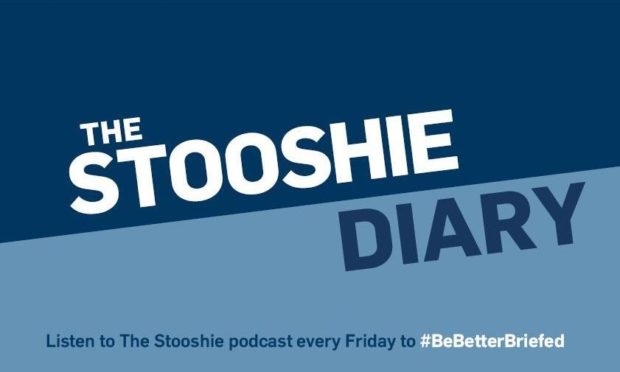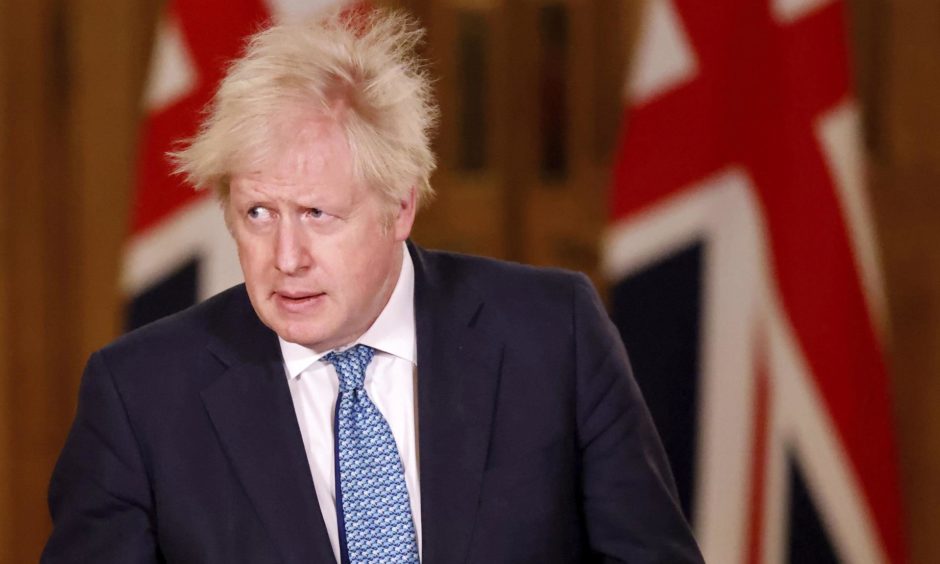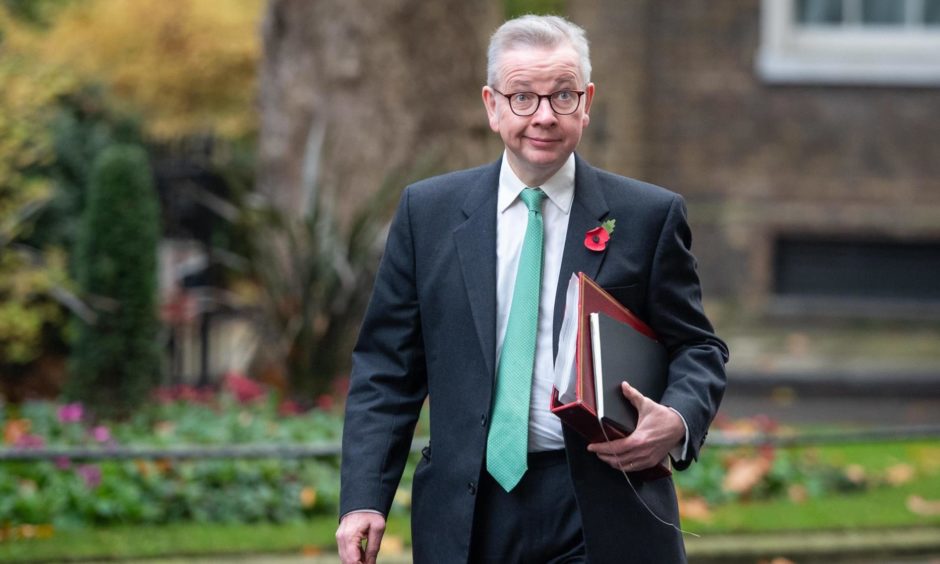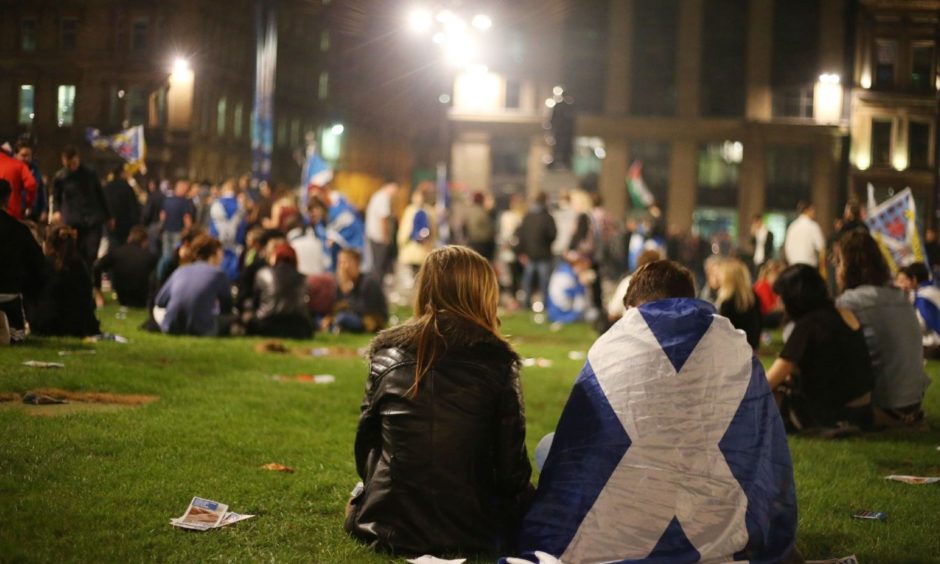One of the first things you learn from speaking to politicians is that often the things they don’t – or can’t – say are as interesting as the things they do.
Boris Johnson’s speech at the Scottish Conservative’s spring conference last weekend was trailed with expectations that he would use the appearance to underline his refusal to grant a second independence referendum, even if the SNP wins a majority in May.
The prime minister is reportedly ready to go gung-ho on a new wave of Union flag-stamped spending in Scotland to get ahead of a widely projected SNP victory in the Scottish Parliament elections and prepare his case for saying no to a new vote.
But when the curtain came down on Mr Johnson’s hotly anticipated speech on Sunday, there was a glaring omission from what pundits had anticipated.
The prime minister was happy to slam the SNP for its “obsession” with holding a new referendum “regardless of the cost to Scotland and the whole of the UK” and even went as far as to say a second vote on separation is the “last thing” Scots need.
Ian Blackford, the SNP’s Westminster leader, had earlier claimed a vote could be staged “as early as late 2021” if his party wins the election but Mr Johnson failed to say whether he would be bold enough to refuse a majority-holding SNP government.
Perhaps it could be put down as a slip of the mind were it not for the appearance of Michael Gove on Monday at what the cynically minded might describe as a fortuitously timed announcement of UK Government civil service jobs being moved to Scotland.
Mr Gove was similarly tight-lipped when pressed on whether the UK Government would say no to a new vote if it was requested in such circumstances, despite being asked for clarification repeatedly.
The Cabinet Office minister was keen instead to push the the line that the most important thing is to focus on the UK’s recovery from coronavirus and to simply wait and see what happens at May’s election.
So why would Mr Johnson and Mr Gove be so reluctant to rule out acquiescing to the SNP, as former chancellor George Osborne urged the prime minister to do in January?
Could it be because, as some have suggested, Mr Johnson may be forced into following the lead of David Cameron and greenlight a referendum if the SNP win an outright majority in May? Only the prime minister and his closest allies know for sure.
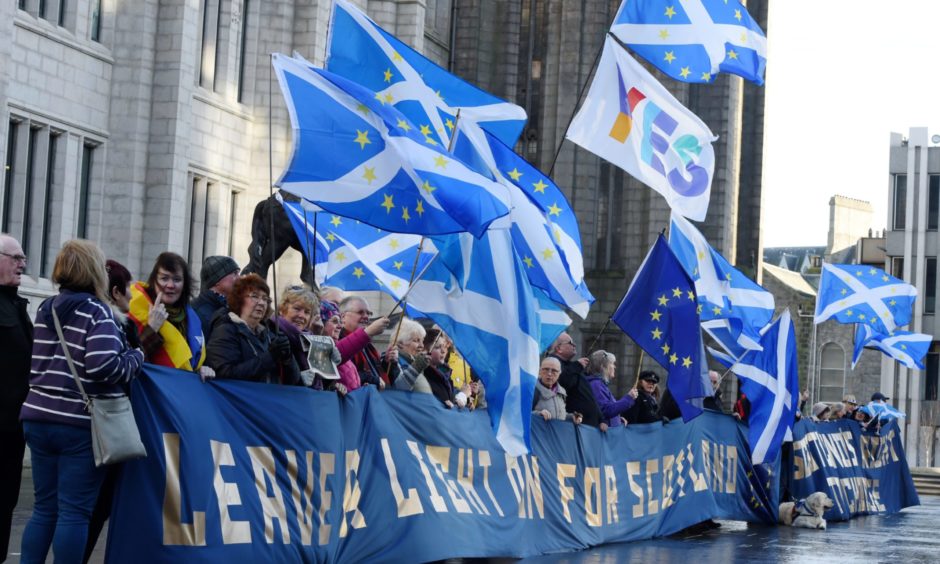
Tidal wave
While the things Mr Johnson chose not to say on Sunday may be telling, so too are the words and actions of his government over recent days.
The prime minister chose to speak of his “love” for Scotland and vowed to deliver a “pent-up tidal wave of opportunity and investment” that would allow Scots to “share in, to be part of, and to drive our UK recovery”.
Just hours later, Mr Gove was north of the border pledging his civil service jobs move would end the “Westminster-knows-best approach to policymaking” and promising to ensure “Scottish voices shape everything we do”.
The love-bombing, used to questionable effect during the last Scottish independence referendum in 2014, appears to already be in full swing.
There was also an implicit admission in the remarks made by a number of speakers over the course of the weekend that stopping an SNP majority in May will put a stop to all chances of a second referendum.
Why would there be a need to block an SNP majority to this end if the prime minister intends to simply reject calls, anyway?
Regardless, Mr Johnson told delegates that only the Scottish Conservatives can achieve this goal and that this, coupled with securing Scotland and the UK’s recovery from coronavirus, should be the main aim ahead of the election.
Perhaps this was a clue to another of the party’s goals in the coming months. Current and former Labour leaders, Sir Keir Starmer and Jeremy Corbyn, came in for criticism from the prime minister but there was not a single mention of Nicola Sturgeon.
The SNP leader’s position has been weakened by the Alex Salmond affair and countless other issues in recent months but perhaps it is Scottish Labour, starting fresh under a new leader, Anas Sarwar, that the Conservatives see as most likely to bleed voters in May.
